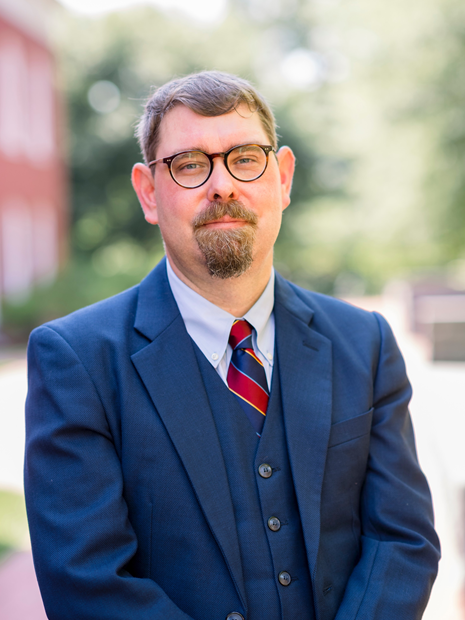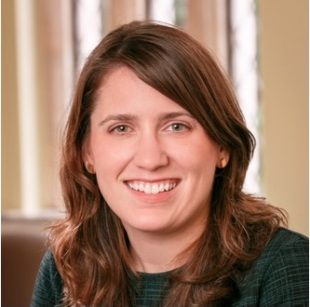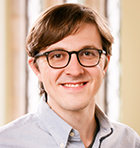Join us for a talk by Dr. Sarah Bond, Assistant Professor in Classics at the University of Iowa. She will be speaking on “Why We Need to Start Seeing the Classical World in Color.”
Monday, November 13, 2017
5pm
Northen Auditorium
Why We Need to Start Seeing the Classical World in Color
Sarah E. Bond
Department of Classics
University of Iowa
In an essay, Sarah Bond writes, “The equation of white marble with beauty is not an inherent truth of the universe; it’s a dangerous construct that continues to influence white supremacist ideas today.” Bond continues her exploration of color perceptions in the scope of the ancient world with a discussion of polychromy and the technology used to restore the colors of statues and other pieces of ancient Roman art. She prompts us to wonder: what is the relationship between color and our cultural values? Why is white marble considered the epitome of beauty? What influenced this perception, and how can we challenge it? How does this reflect on the status of ourselves? Bond’s talk will raise these questions about cultural values and explore what the absence of color really means.
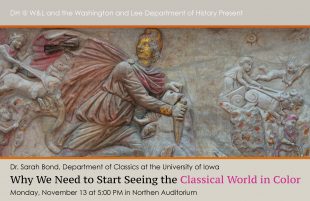
Dr. Sarah Bond is an assistant professor in Classics at the University of Iowa. She is a digital humanist, who is also interested in late Roman history, epigraphy, late antique law, Roman topography, and the socio-legal experience of ancient marginal peoples. Bond earned her Ph.D. in History from the University of North Carolina at Chapel Hill and her B.A. in Classics and History with a minor in Classical Archaeology from the University of Virginia. During the 2011-2012 academic year, she was a Mellon Junior Faculty Fellow in Classics and History at W&L.
This event is made possible by a grant from the Andrew W. Mellon Foundation and a Dean of the College Cohort Grant. It is co-sponsored by the Washington and Lee History Department.
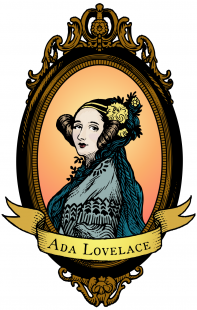
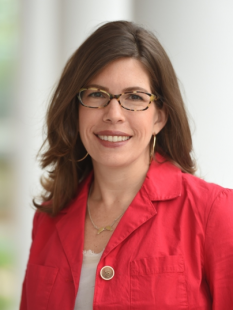
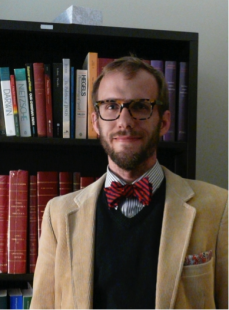
 Alex Gil specializes in twentieth-century Caribbean literature and Digital Humanities, with an emphasis on textual studies. His recent research in Caribbean literature focuses on the works and legacy of Aimé Césaire, including work in Aimé Césaire: Poésie, théâtre, essais et discours published by Planète Libre in 2013. He has published in journals and collections of essays in Canada, France and the United States, while sustaining an open-access and robust online research presence. In 2010-2012 he was a fellow at the Scholars’ Lab and NINES at the University of Virginia. He is founder and vice chair of the Global Outlook::Digital Humanities initiative and the co-founder and co-director of the Group for Experimental Methods in the Humanities and the Studio@Butler at Columbia University. He serves as Co-editor for Small Axe: Archipelagos and Multilingual Editor for Digital Humanities Quarterly. Alex Gil is actively engaged in several digital humanities projects at Columbia and around the world, including Ed, a digital platform for minimal editions of literary texts; the Open Syllabus Project; the Translation Toolkit; and, In The Same Boats, a visualization of trans-atlantic intersections of black intellectuals in the 20th century.
Alex Gil specializes in twentieth-century Caribbean literature and Digital Humanities, with an emphasis on textual studies. His recent research in Caribbean literature focuses on the works and legacy of Aimé Césaire, including work in Aimé Césaire: Poésie, théâtre, essais et discours published by Planète Libre in 2013. He has published in journals and collections of essays in Canada, France and the United States, while sustaining an open-access and robust online research presence. In 2010-2012 he was a fellow at the Scholars’ Lab and NINES at the University of Virginia. He is founder and vice chair of the Global Outlook::Digital Humanities initiative and the co-founder and co-director of the Group for Experimental Methods in the Humanities and the Studio@Butler at Columbia University. He serves as Co-editor for Small Axe: Archipelagos and Multilingual Editor for Digital Humanities Quarterly. Alex Gil is actively engaged in several digital humanities projects at Columbia and around the world, including Ed, a digital platform for minimal editions of literary texts; the Open Syllabus Project; the Translation Toolkit; and, In The Same Boats, a visualization of trans-atlantic intersections of black intellectuals in the 20th century.